A non-viscous liquid of constant density 1000kg/m3 flows in a streamline motion along a tube of variable cross section. The tube is kept inclined in the vertical plane as shown in Figure. The area of cross section of the tube two point P and Q at heights of 2 metres and 5 metres are respectively 4×10−3m2 and 8×10−3m2. The velocity of the liquid at point P is 1m/s. Find the work done per unit volume by the pressure and the gravity forces as the fluid flows from point P to Q.
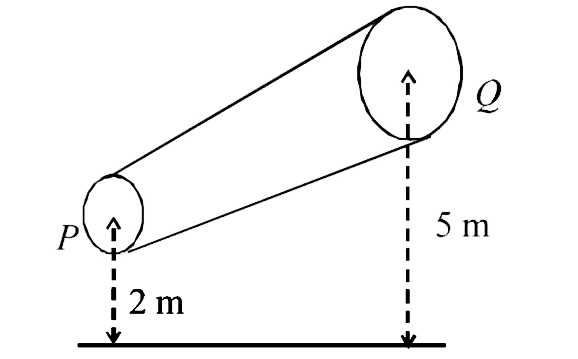
zero
29400J/m3
−29400J/m3
29025J/m3
The correct Answer is:D
Given A1=4×10−3m2,A2=8×10−3m2,h1=2m,h2=5m,v1=1m/sandρ=103kg/m3
From continuity equation, we have A1v1=A2v2orv2=(A1A2)v1
or v2=(4×10−38×10−3)(1m/s)⇒v2=12m/s
Applying Bernoulli's equation at sections 1 and 2
p1+12ρv21+ρgh1=p2+12ρv22+ρgh2
or p1−p2=ρg(h2−h1)+12ρ(v22−v21) ...(i)
(a) Work done per unit volume by the pressure as the fluid flows from P to Q.
W1=p1−p2=ρh(h2−h1)+12ρ(v22−v21) [From equation (i) ]
={(10)3(9.8)(5−2)+12(10)3(14−1))}=[24900−375]=29025J/m3
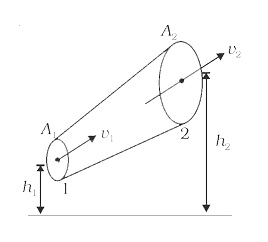
Similar Questions
(i) Air (density=ρ) flows through a horizontal venturi tube that discharges to the atmosphere. The area of cross section of the tube is A1 and at the constriction it is A2. The constriction is connected to a water (density=ρ0) tank through a vertical pipe of lenght H. Find the volume flow rate (Q) of the air through tube that is needed to just draw the water into the tube.
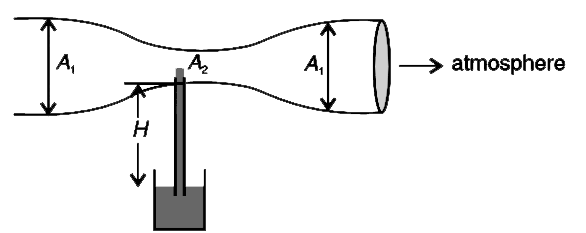
(ii) A non viscous liquid of constant density ρ flows in a stremline motion along a tube of variable cross section. The tube is kept inclined in the vertical plane as shown in the figure. The area of cross section of the tube at two points P and Q at heights of h1 and h2 are respectively A1 and A2. The velocity of the liquid at point P is v. Find the work done on a small volume ΔV of fluid by the neighbouring fluid as the small volume moves from P to Q.
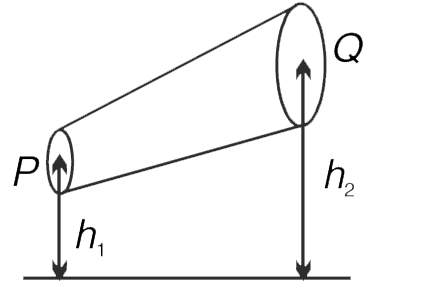
View SolutionA non-viscous liquid of constant density 500kg/m3 flows in a variable cross-sectional tube. The area of cross section of the tube at two points P and Q at heights of 3m and 6m are 2×10−3m3 and 4×10−3m3, respectively. Find the work done per unit volume by the forces of gravity as the fluid flows from point P to Q.
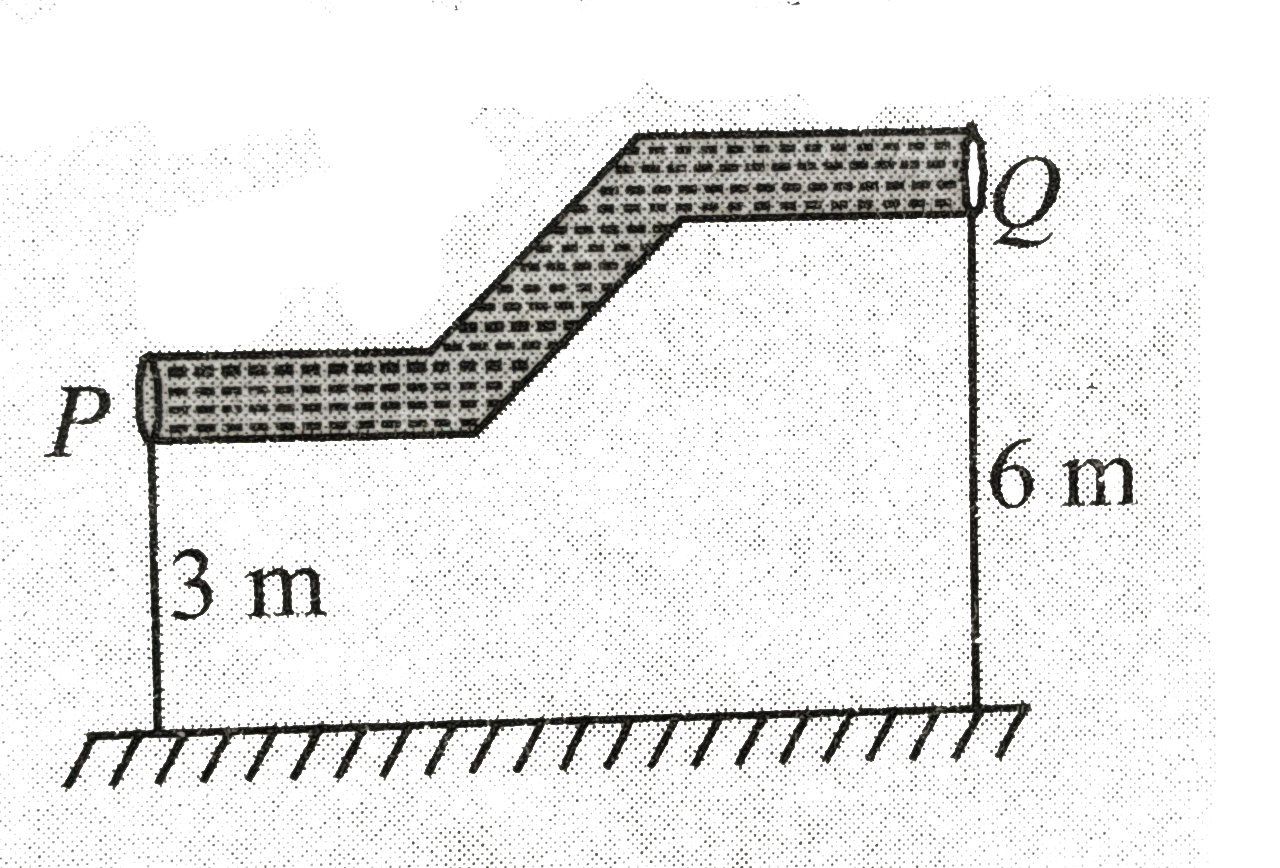
View Solution
Knowledge Check
A non-viscous fluid of constant density of 1000kg/m3 flows in stream line motion along a tube of variable cross-section
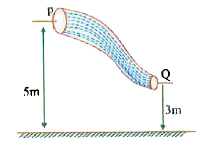 The area of cross-section at two P and Q at lengths 5m are 40cm2and20cm2 respectively. If velocity of fluid at P is 3m/s then find velocity of fluid at Q.A3m/sB4m/sC5m/sD6m/s
The area of cross-section at two P and Q at lengths 5m are 40cm2and20cm2 respectively. If velocity of fluid at P is 3m/s then find velocity of fluid at Q.A3m/sB4m/sC5m/sD6m/sA non viscous liquid of constant density 103kg/m3 flows in stream line motion along a vertical tube PQ of variable cross-section. Height of P and Q are 2m and 2.5m respectively. Area of tube at Q is equal to 3 times the area of tube at 'P'. Then work done per unit volume by pressure as liquid flows from P and Q. Speed of liquid at 'P' is 3m/s.
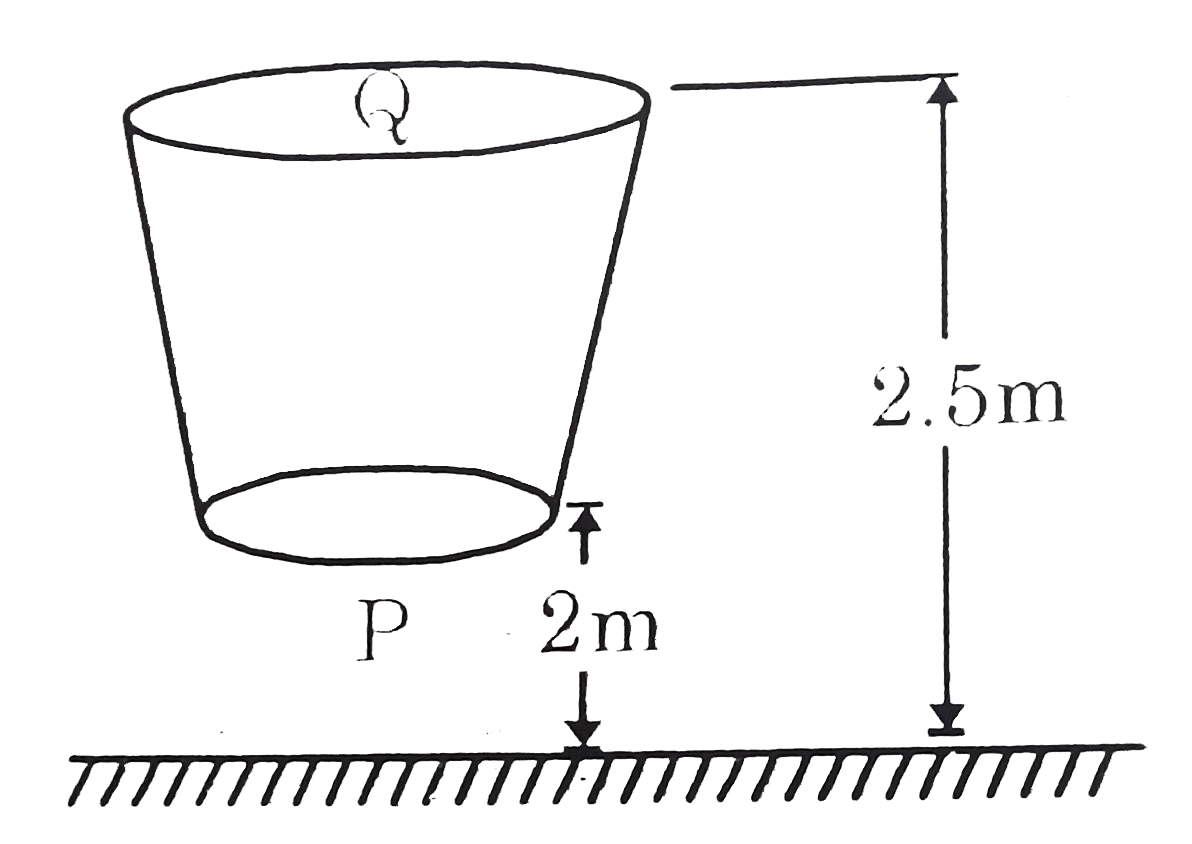 A2000J/m3B1000J/m3C1500J/m3D9000J/m3
A2000J/m3B1000J/m3C1500J/m3D9000J/m3A liquid of density ρ comes out with a velocity v from a horizontal tube of area of cross-section A. The reaction force exerted by the liquid on the tube is F :
AF∝vBF∝v2CF∝ADF∝ρ
Water flows through the tube shown in figure. The areas of cross section of the wide and the narrow portions of the tube are 5cm2and2cm2 respectively. The rate of flow of water through the tube is 500cm3s−1 . Find the difference of mercury levels in the U-tube.

View SolutionWater flows through the tubes shown in figure. The areas of cross-section of the wide and the narrow portions of the tube are 5cm2 and 2cm2 respectively. The rate of flow of water through the tube is 500cm3/s. Find the difference of mercury levels in the U-tube.
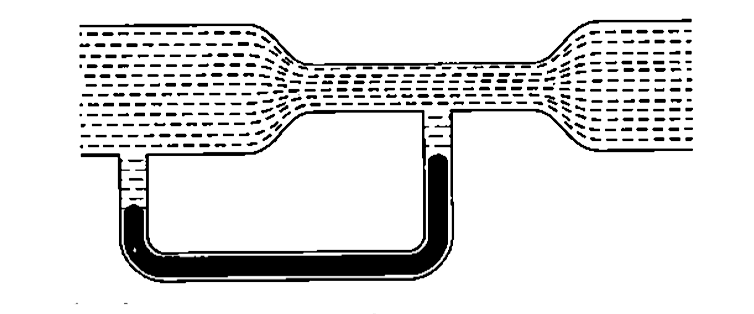
View SolutionFigure shows a liquid of densith 1200kgm−3 flowing steadily in a tube of varying cross section. The cross section at a point A is 1.0cm2 and that at B is 20mm2, the points A and B are in the same horizontal plane.The speed of the liquid at A is 10 cms−1. Calculate the difference in pressure at A and B.

View SolutionDerive the Bernoulli equation for an incompressible liquid flowing in an inclined tube of variable cross section in a gravitational field.
View SolutionA V-shaped glass tube of uniform cross section is kept in a vertical plane as shown. A liquid is poured in the tube. In equilibrium the level of liquid in both limbs of tube are equal. Find the angular frequency of small oscillation of liquid.
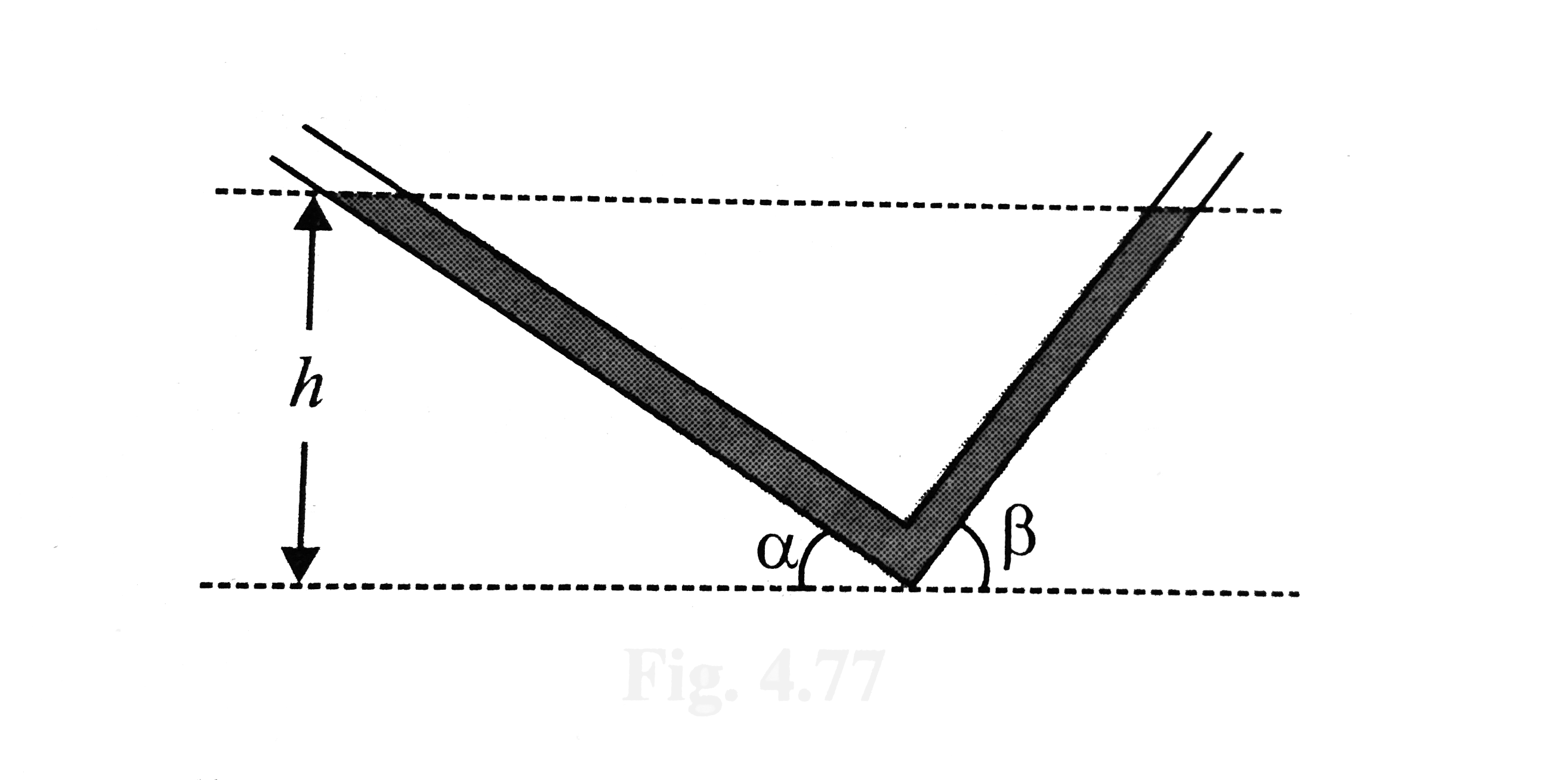
View Solution
